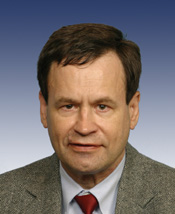A Quote by Robert Kennedy
Our generation was born during the turmoil following the First World War. That war marked the dividing line - at least for the Western World - between the comfortable security of the 19th century and the instability and flux of our own time.
Related Quotes
I think confronted with the modern world or with the rest of the world, I think people are becoming aware that the Western and Islamic civilizations have more in common than apart. It was a German scholar, C. H. Becker, who said a long time ago that the real dividing line is not between Islam and Christendom; it's the dividing line East of Islam, between the Islamic and Christian worlds together on the one hand and the rest of the world on the other. I think there is a lot of truth in that.
However, there is a fundamental difference between the issue related to Japan's history and our negotiations with China. What is it all about? The Japanese issue resulted from World War II and is stipulated in the international instruments on the outcomes of World War II, while our discussions on border issues with our Chinese counterparts have nothing to do with World War II or any other military conflicts. This is the first, or rather, I should say, the second point.
The American tradition of foreign policy exceptionalism, our grand strategy as a nation, reaches back much further. Really at the turn - the end of the 19th century, when we achieved power a generation after the Civil War, the outlines of an American vision came into focus, and what we - it was based on two things. One, our realization that our values and our interests were the same, and that our business interests would advance as our values advanced in the world.
You ask what my conclusions are, rereading my journals and looking back on World War II from the vantage point of quarter century in time? We won the war in a military sense; but in a broader sense, it seems to me we lost it, for our Western civilization is less respected and secure than it was before.
World War Two was a world war in space. It spread from Europe to Japan, to the Soviet Union, etc. World War Two was quite different from World War One which was geographically limited to Europe. But in the case of the Gulf War, we are dealing with a war which is extremely local in space, but global in time, since it is the first 'live' war.
It is my belief that whereas the twentieth century has been a century of war and untold suffering, the twenty-first century should be one of peace and dialogue. As the continued advances in information technology make our world a truly global village, I believe there will come a time when war and armed conflict will be considered an outdated and obsolete method of settling differences among nations and communities.
... there was the first Balkan war and the second Balkan war and then there was the first world war. It is extraordinary how having done a thing once you have to do it again, there is the pleasure of coincidence and there is the pleasure of repetition, and so there is the second world war, and in between there was the Abyssinian war and the Spanish civil war.
As we watch the world embrace the Olympics in the coming days, let us remember why the modern Olympics came into being: to bring nations closer together, to have the youth of the world compete in sports, rather than fight in war. As long as we believe our own war-driven thoughts, there will always be war, in ourselves, in our families, and in our world. As long as we believe our thoughts, there will always be war.
In the middle of the nineteenth century, the United States embarked on a new relationship with death, entering into a civil war that proved bloodier than any other conflict in American history, a war that would presage the slaughter of World War I's Western Front and the global carnage of the twentieth century.


































